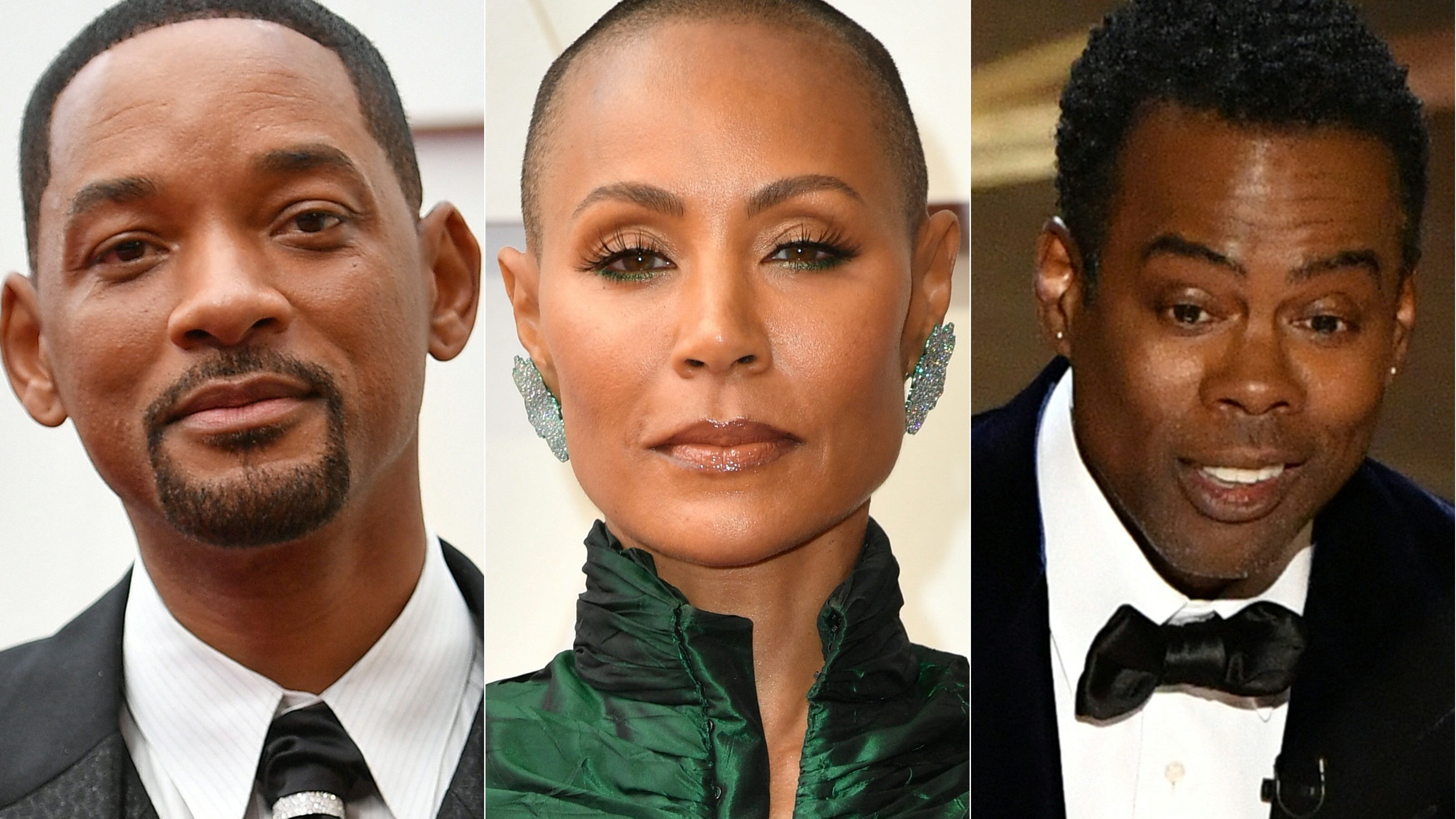Will Smith Thought He Was Protecting His Wife. Instead, He Was Excusing Violence as “Love”
As a Black woman and survivor of domestic violence, I was traumatized by Will Smith’s attack on Chris Rock.


As a Black woman and survivor of domestic violence, I was re-traumatized by Will Smith’s attack on Chris Rock during the Oscars. I watched in confusion as Smith marched toward Rock to deliver his blow, ostensibly in defense of his wife, Jada Pinkett-Smith, who was the butt of a joke made by the presenter. After the display of violence, Smith returned to his seat and repeatedly screamed at Rock: “Keep my wife’s name out of your f*cking mouth.”
I was triggered.
The online world was whipped into a frenzy. Debates revealed an America torn between vilification of Smith for his violent, unbecoming behavior and celebration of his male bravado in the face of a verbal attack on his wife. For many, Pinkett-Smith—a Black woman who has been public about her struggle with the hair-loss disorder alopecia—represented a demographic of women far too frequently left unprotected. Through that lens, Smith became her protector and hero.
As the show continued and it became abundantly clear that Smith would face no consequences for assaulting someone on live television, I sank even deeper into trauma. But victims like me are not the only people harmed by what happened Sunday night. Such violence displayed on national television has major implications. Especially because, not only was it not addressed in any significant way, it was normalized. Moments later, Smith took to the stage to accept his Best Actor award for his portrayal of the audacious father of tennis legends Serena and Venus Williams in King Richard. He blamed “love” for his actions—something abusers often do—and apologized to the Academy and his fellow nominees for the disruption, but refused to apologize to Rock for physically assaulting him. He received a standing ovation from the audience.
I know we’re all still processing, but the way casual violence was normalized tonight by a collective national audience will have consequences that we can’t even fathom in the moment. #Oscars2022March 28, 2022
As I watched, I wondered how often must women be reminded that powerful men who commit violent behavior will not be held accountable for their actions? Sadly, on Sunday, millions across the nation received the message that violence is okay and no space is too sacred for it to not erupt within. Many of those people are abuse survivors and Black women who were yearning to see the celebration of a positive depiction of Black fatherhood.
The importance of the movie King Richard for the Black community cannot be overstated. It depicts the grit, hard work, commitment, and love from Richard that was necessary for his two little Black girls to rise in the ranks of tennis, a very white-dominated sport. It shattered stereotypes about “dead beat” Black fathers and their undesired, unprotected, and unwanted daughters, casting this essential relationship dynamic in a new, healthier light. For a community constantly embroiled in hardship that stems from centuries of oppression that wreaked havoc on the social fabric of Black families, the celebration of this movie (and Smith in the role of Richard Williams) was monumental. It was meant to serve as proof that despite all of the hardship, Black families—with a Black man at the head—can survive and thrive. That Black people can rise above and reclaim lives not confined with the cycles of abuse we too frequently recreate.
Yet, it was in this very moment of celebration that the damning reality of toxic patriarchal abuse was tossed right back in the laps of Black people. Though many argue that Smith hit Rock to protect his wife from maliciousness, such excuses merely attempt to serve as justification for behavior that should never be considered appropriate. It is saddening that Smith’s male bravado and sense of “ownership” over his wife casted such a dark shadow over what should’ve been a joyous night. Further normalizing violence will not protect anyone, and definitely not Black women, including Jada Pinkett-Smith.
Get exclusive access to fashion and beauty trends, hot-off-the-press celebrity news, and more.
Tiffanie Drayton is a Trinidadian-American writer who loves to share the beauties and hardships of her experiences as a black woman. Find her on Twitter @draytontiffanie.
